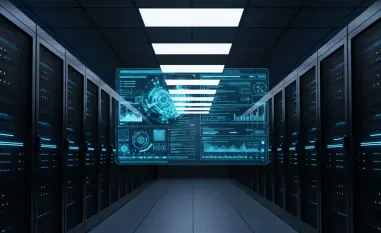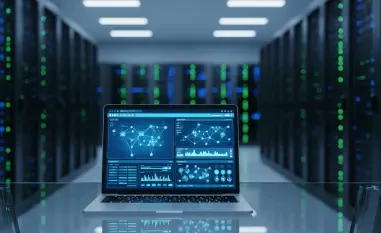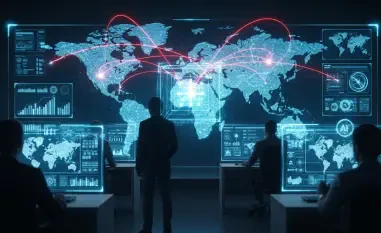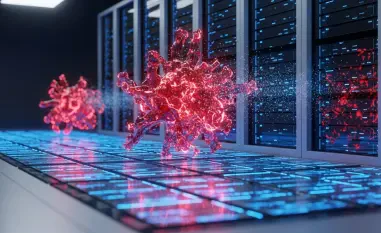The 2025 Vanderbilt Summit on Modern Conflict and Emerging Threats is set to be a seminal event in Nashville, Tennessee, on April 10, 2025, where global thought leaders and policymakers will converge to discuss the evolving dynamics of modern conflict and the role of emerging technologies. This year’s theme, “AI and the Future of National Security: Emerging Threats, Challenges, Opportunities,” promises to provide a platform for examining how cutting-edge technologies such as AI are shaping the future of national security. Sam Altman, CEO of OpenAI and a pioneer in artificial intelligence, will deliver the opening keynote, setting the stage for an impactful event.
The Significance of AI in National Security
Altman’s Keynote and the Summit’s Focus
Sam Altman, renowned for his work with pioneering AI technologies like ChatGPT, will highlight the intersection of artificial intelligence and national security. His keynote is expected to underscore the importance of proactive approaches to leveraging AI for the benefit of societies while addressing the inherent security concerns. AI has progressed significantly, influencing various sectors, and its role in national security has become indispensable.
By integrating AI into defense mechanisms, countries are better equipped to predict and counter emerging threats. Altman’s insights will likely delve into the transformative power of AI in mitigating risks and harnessing opportunities within national security contexts. This aligns perfectly with the overarching summit goal of fostering collaboration and dialogue among experts in the realm of emerging technologies.
Panels on AI and Cybersecurity
The summit will feature various panels, each focusing on critical areas where AI’s influence is most pronounced. Among these, the panel on Biomedicine and AI will explore the merging of healthcare advancements with artificial intelligence, offering insights into how AI can predict, prevent, and respond to biological threats. This discussion is pivotal in understanding the broader implications of AI beyond traditional security domains.
Another significant panel, “Rethinking Cybersecurity and AI,” will address the ever-evolving landscape of digital threats. As cyber-attacks become more sophisticated, the integration of AI in cybersecurity is crucial for developing advanced defense mechanisms. Experts will discuss strategies to fortify cyber defenses, the ethical considerations of using AI in this field, and how to balance privacy and security.
The Changing Character of Conflict
Modern Warfare and AI
One of the summit’s focal points will be understanding how AI is reshaping modern warfare. The panel on “The Changing Character of Conflict” will investigate the implications of AI-driven strategies and technologies on the battlefield. From autonomous drones to advanced surveillance systems, the integration of AI in military operations is a game-changer. This panel will explore the ethical, legal, and tactical dimensions of utilizing AI in armed conflicts.
The emergence of AI has introduced new dynamics in power projection and conflict resolution. As traditional strategies evolve, nations must adapt to the growing influence of AI in warfare. Discussions will touch upon the challenges of maintaining human oversight and the risks of escalating conflicts through autonomous systems. The insights gained here will be crucial for policymakers and military strategists in crafting responses to future threats.
A Vision for an AI-Driven Future
Looking ahead, the summit’s concluding panel, “A Vision for an AI-Driven Future,” will explore the long-term possibilities and challenges of AI in national security. This session aims to project how AI will shape global security dynamics in the next few decades. Experts will debate the potential for AI to foster peace and stability, as well as the risks associated with its misuse in geopolitical rivalries.
In envisioning an AI-driven future, the focus will also be on policy frameworks that ensure ethical AI deployment. The goal is to harness AI’s potential responsibly, promoting international cooperation and regulations to prevent AI-enabled arms races. This forward-looking panel will provide valuable perspectives on creating a balanced approach to AI, ensuring it serves humanity’s interests while safeguarding against emerging threats.
The Inaugural Summit Under New Leadership
The Vanderbilt Institute of National Security
This year marks the first summit organized under the newly established Vanderbilt Institute of National Security. Headed by General (Ret.) Paul M. Nakasone, former NSA Director and U.S. Cyber Command Commander, the institute aims to become a leading center for national security studies. General Nakasone’s leadership brings a wealth of experience and credibility to the institute, promising a high-caliber event.
The institute’s mission is to advance the understanding and implementation of security measures in the face of modern threats. By facilitating discussions on AI and emerging technologies, the institute seeks to influence policy and practice at the highest levels. The summit reflects this mission, providing a forum for experts to share knowledge, foster innovation, and build strategies to address contemporary security challenges.
Collaboration and Dialogue
The 2025 Vanderbilt Summit on Modern Conflict and Emerging Threats is poised to be a landmark event in Nashville, Tennessee, on April 10, 2025. This gathering will bring together international thought leaders and policymakers to explore the rapidly changing landscape of modern conflict and the influence of advanced technologies. With this year’s theme titled “AI and the Future of National Security: Emerging Threats, Challenges, Opportunities,” the summit aims to provide a comprehensive examination of how revolutionary technologies like AI are shaping the evolution of national security paradigms. Sam Altman, the CEO of OpenAI and a leading figure in artificial intelligence, will kick off the event with the opening keynote address, laying the groundwork for an engaging and thought-provoking conference. The summit promises to offer invaluable insights, meaningful discussions, and potential solutions to the complex challenges posed by modern technological advancements and their implications for global security.













